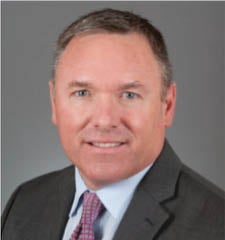For more information:
Email UsLearning Outcomes
- Understand the roles of grant finance managers and other key positions.
- Distinguish between the responsibilities that administrators and investigators hold in managing grants.
- Determine, locate, and navigate the appropriate resources from your institution to support the financial management of your research projects.
- Identify common mistakes in the management of major NIH grant funds and other sources, and generate solutions.
Managing grant finances requires a complex set of regulatory and fiduciary responsibilities. Ultimately, principal investigators serve an active role during this important process as they are responsible for managing the finances of their projects, while working in close collaboration with the finance team and key research administrative offices.
In this interactive webinar, participants will learn about the roles of grant finance managers and other key figures, as well as determine how to distinguish between the responsibilities of administrators and investigators in this context. In addition, they will learn how to determine, locate, and navigate the appropriate resources from the institution to support the financial management of research projects. Participants will also learn about some basic principles, along with common themes, and pitfalls that emerge during the management of major grant funds. This session will involve didactic and interactive components with breakout rooms led by facilitators in which attendees are expected to engage and participate.
Boundary-Crossing Skills for Research Careers
This series explores approaches to developing a broad range of competencies integral to establishing and maintaining a successful research career. The series delves into the following competencies: team science, mentorship, project management, communication, leadership, and funding research. For more information and to access other resources and webinars in the series, please visit Boundary-Crossing Skills for Research Careers.
Meet the Session Lead and Moderator
 Gus Cervini, MBA, is senior vice president of research administration at Boston Children’s Hospital. Cervini directs the administrative infrastructure that supports a research enterprise of approximately 1,500 investigators who generate $310 million in annual expenditures. Prior to this role, he was senior director of administration and research in the Department of Medicine at Brigham and Women’s Hospital (BWH), where he held administrative oversight for $435 million in annual research expenditures; 1600 active, independently-funded sponsored research projects; 430,000 square feet of research space; and more than 1000 principal investigators and research fellows.
Gus Cervini, MBA, is senior vice president of research administration at Boston Children’s Hospital. Cervini directs the administrative infrastructure that supports a research enterprise of approximately 1,500 investigators who generate $310 million in annual expenditures. Prior to this role, he was senior director of administration and research in the Department of Medicine at Brigham and Women’s Hospital (BWH), where he held administrative oversight for $435 million in annual research expenditures; 1600 active, independently-funded sponsored research projects; 430,000 square feet of research space; and more than 1000 principal investigators and research fellows.
Prior to joining the BWH, Cervini was chief of staff at the Broad Institute of MIT and Harvard, project manager for institutional events at the Whitehead Institute, and media coordinator for the American Psychiatric Association. He was selected as one of Boston Business Journal’s 40 Under 40 (2003) for his role in the founding of the Broad Institute. Cervini served in the United States Army Reserve from 1986-2004. He received his BA from Providence College and MBA from Regis University.
Meet the Facilitators
Theresa Applegate-Foschio, MPA
Senior Director, Office of Sponsored Programs, Boston Children’s Hospital
Lauren Robertson, MHA, MSM
Director, Research Administration, Boston Children’s Hospital
Amy Weinberg, MHP
Senior Administrative Director, Research Programs, Boston Children’s Hospital
Session Date
March 9, 2023
2:00-3:30pm ET
Audience
This interactive webinar is intended for emerging researchers, principal investigators, and junior faculty who are leading, or plan to lead projects, with established or anticipated funding from the NIH and other sources. Although there are no eligibility requirements to register and participate in the session, please note that it has been designed for this audience.
We believe that the research community is strengthened by understanding how a number of factors including gender identity, sexual orientation, race and ethnicity, socioeconomic status, culture, religion, national origin, language, disability, and age shape the environment in which we live and work, affect each of our personal identities, and impacts all areas of human health.
Register
The application process is closed. Please check back for future opportunities.

